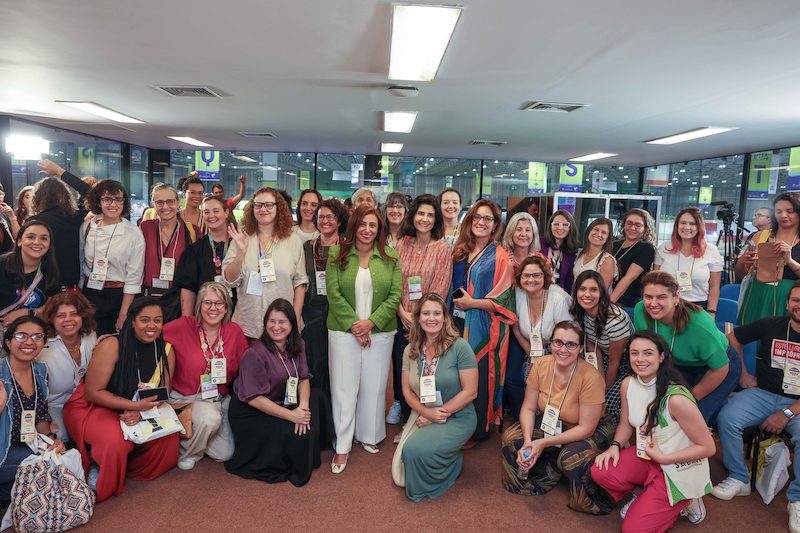In September, one of the most significant book events in Brazil took place, the Rio de Janeiro Book Fair (Bienal do Livro do Rio de Janeiro), with record-breaking numbers of attendees and sales, and for the first time, featuring an international Summit for the publishing industry.
Our book fair is filled with young people, making it essential for the development of new readers. Bringing more people into the world of books not only expands its reach but also enhances the diversity of the audience. And when it comes to diversity, there’s no better place to start than inside, within our own community—those who create the books, handle contracts, engage with authors, manage marketing, and shape how we communicate with readers.
The summit featured a track dedicated to women in publishing (womeninpublishing.org), in cooperation with PublishHer, an empowered community of female publishing leaders seeking creative solutions to many gender-based inequities, to drive an international agenda for change.
Women make up the majority of the workforce in the publishing industry, but their presence tends to decrease in higher leadership positions. The discussions, including the sharing of experiences and best practices were intense, extending beyond the event rooms—taking place in cafes, diners, on social media, and in the planning of future gatherings.
The opening took place with PublisHer founder and former IPA President, Bodour Al Qasimi, who came from Sharjah for this new round of conversations having inaugurated the Brazilian chapter last year at the São Paulo Biennial.
We also had a panel with a packed room and stage, featuring Brazilian women from various generations and backgrounds, representing different types of publishing houses: PublisHer Brazilian chapter head Flavia Bravin (Saber/ SNEL), Karine Pansa (Girassol); Ana Lima (Rocco); Roberta Machado (Grupo Editorial Record); Camila Perlingeiro (Mapa Lab); Lizandra Magon (Jandaíra); and Paula Carvalho (Tinta-da-China Brasil). They shared their experiences and discussed what they are doing in their companies, as well as the challenges and best practices for promoting more diversity and inclusion of women in the publishing industry.
It’s fascinating to see how realities and stages vary greatly among different publishers, which makes the debate even richer. This diversity also extends on a global scale, given that PublisHer has leaders from all over the world. PublisHer will be together again at the Frankfurt Book Fair: with its own booth, coffee, and new panels – we extend our invitation for anyone to come by. Also, we invite you to register on our website and LinkedIn (at publisherevents) to receive newsletters about toolkits, upcoming events, and our progress.
Much progress has been made if we consider that in 1916 a career guide for girls wrote that “editors, the reporters, and the men who rewrite stories, must be able to work under pressure in a way that is beyond the power of most women” (Claro, L.). We count on you to help expand the reach of our actions and discussions towards a more diverse, inclusive, and equitable publishing industry. There are many ways you can help: sharing your experiences, offering your perspective, and participating in events and debates. We still have a long way to go.

